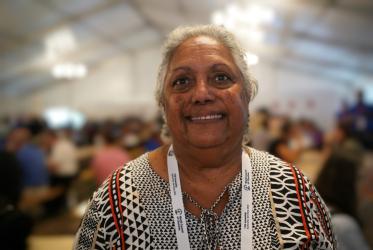Displaying 1 - 17 of 17
Migrants in Argentina find listening ears and open hearts
04 November 2022
Christ’s Love (Re)moves Borders – GETI 2022 in images
13 September 2022
Ukraine: Responding to humanitarian need
08 September 2022
Promoting human dignity through art
06 September 2022
Indigenous women struggle for identity in Asia and beyond
05 September 2022
Women with disabilities want to belong in churches
31 August 2022
Media accreditation opens for the 11th WCC Assembly
31 January 2022
















